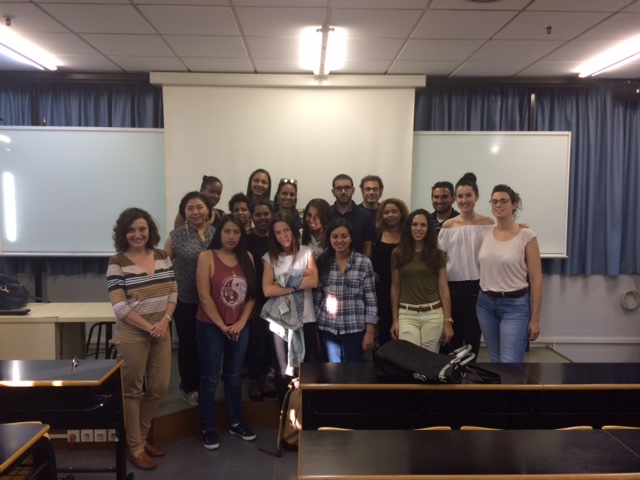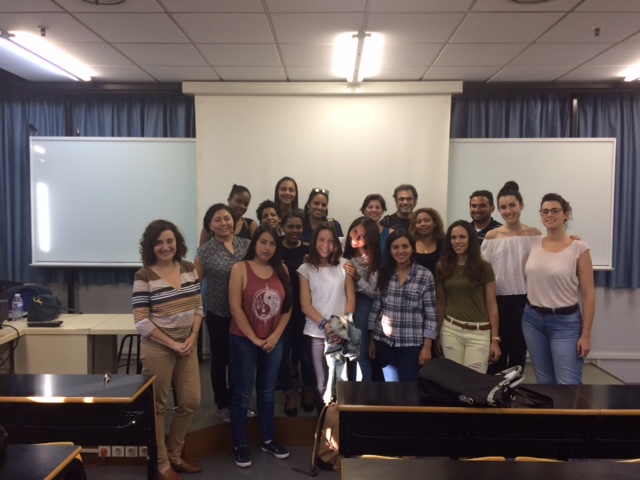A group of researchers of Universitat de València, professors of Master's Degree in Tropical Parasitic Diseases, have depicted a biological mechanism which can be determinant to explain the resistance against intestinal helminths. The report, published in the journal “Scientific Reports” of Nature Group, focuses on the processes determining the production of interleukin (IL)-25 and its role of this cytokine on the resistance against these parasites.
1 february 2017
In general, the susceptibility against intestinal helminths is associated with the development of type Th1 immune responses, while resistance is related with the generation of typeTh2 responses with high levels of IL-4 and/or IL-13. To date, the paper of IL-25 in these processes was nearly known, in particular relating to regulatory processes which determine its production. This cytokine is produced by cells caveolae in the intestine and acts on type 2 innate lymphoid cells, which produce IL-13, providing Th2 responses. Likewise, the IL-13 activate cells caveolae, increasing the IL-25 production in a process that feedbacks itself, facilitating the expulsion of parasites.
The published research shows that the proliferation of caveolae cells does not imply an increase in the production of IL-25, suggesting that these parasites are capable of blocking the expression of this cytokine by ensuring its survival in the host and giving rise to chronic infections. By using the Echinostoma caproni intestinal trematode as an experimental model, the authors demonstrate that, in primary mouse infections associated with chronicity, the mouse is not capable of producing IL-25 by generating a Th1-type response. However, the pharmacological cure of this primary infection and the consequent regeneration of intestinal fabric implies the production of IL-25, which determine the mouse is resistant to reinfection thanks to the expression of this cytokine. The study evidences the immunoregulatory capacity of intestinal helminths and the importance of tissue changes in the development of these parasitic infection.
The researcher group (Immunoparasitology ), lead by Dr Rafael Toledo, belongs to the Department of Pharmacy, Pharmaceutical Technology and Parasitology of the Universitat de València and the RICET group (Collaborative Research in Tropical Diseases) is composed entirely of Master's Degree in Tropical Parasitic Diseases and the research has been developed at the Universitat de València in collaboration with the Central Service of Support to Experimental Research (SCSIE) of the same institution.
The main line of research of the group has been the immune response to intestinal parasites and their consequences in the course of these infections, whose incidence and severity has increased considerably worldwide in recent years. The report now published has been funded by the Ministry of Economy and Competitiveness (Project BFU2013-41040-P) and by the Conselleria d'Educació, Generalitat Valenciana (Project PROMETEO2014-083 Phase II).











